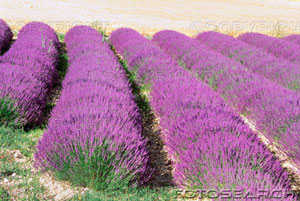LOG IN. UPLOAD PICTURES.
The Philippines has Zambo Mart to help propagate the Chavacano Language.
Lavender
Herbal Remedies and Medicinal Cures for Diseases, Ailments & Illnesses that afflict Humans and Animals
Aloe Vera •
Astragalus •
Bankoro •
Bilberry •
Bitter Gourd (Ampalaya) •
Bitter Orange •
Black Cohosh •
Cat's Claw •
Chamomile •
Chasteberry •
Coconut •
Cranberry •
Dandelion •
Echinacea •
Ephedra •
European Elder Tree •
Evening Primrose •
Fenugreek •
Feverfew •
Flaxseed •
Garlic •
Ginger •
Ginkgo •
Ginseng (Asian) •
Golden Seal •
Grape Seed •
Green Tea •
Hawthorn •
Hoodia •
Horse Chestnut •
Kava •
Lavender •
Licorice •
Malunggay Moringa Oleifera •
Milk Thistle •
Mistletoe •
Passion Flower •
Peppermint Oil •
Red Clover •
Ringworm Bush (Akapulko) – Cassia alata •
Saw Palmetto •
St. John's Wort •
Tawa Tawa •
Turmeric •
Valerian •
Yohimbe •
accept the bitter to get better
 Lavender Flower | |||
| |||
| |||
 Lavender Field | |||
 Lavender Bush |
Lavender
The medicinal herb Lavender as an alternative herbal remedy - Lavender is native to the Mediterranean region. It was used in ancient Egypt as part of the process for mummifying bodies. Lavender's use as a bath additive originated in Persia, Greece, and Rome. The herb's name comes from the Latin lavare, which means "to wash."Common Names--lavender, English lavender, garden lavender Latin Names--Lavandula angustifolia
What Lavender Is Used For
- Historically, lavender was used as an antiseptic and as an herbal remedy for mental health purposes.
- Today, the herb is used for conditions such as anxiety, restlessness, insomnia, and depression.
- Lavender is also used for headache, upset stomach, and hair loss.
How Lavender Is Used
- Lavender is most commonly used in aromatherapy, in which the scent of the essential oil from the flowers is inhaled.
- The essential oil can also be diluted with another oil and applied to the skin.
- Dried lavender flowers can be used to make teas or liquid extracts that can be taken by mouth.
What the Science Says about Lavender
- There is little scientific evidence of lavender's effectiveness for most health uses.
- Small studies on lavender for anxiety show mixed results.
- Some preliminary results indicate that lavender oil, combined with oils from other herbs, may help with hair loss from a condition called alopecia areata.
Side Effects and Cautions of Lavender
- Topical use of diluted lavender oil or use of lavender as aromatherapy is generally considered safe for most adults. However, applying lavender oil to the skin can cause irritation.
- Lavender oil is poisonous if taken by mouth.
- When lavender teas and extracts are taken by mouth, they may cause headache, changes in appetite, and constipation.
- Using lavender with sedative medications may increase drowsiness.
- Tell your health care providers about any complementary and alternative practices you use. Give them a full picture of what you do to manage your health. This will help ensure coordinated and safe care.
News About Lavender
3 Surprising Beauty Benefits Of Lavender'
- Source:3 Surprising Beauty Benefits Of Lavender
- By Dana Oliver (The Huffington Post)
Ah, lavender. Just thinking about the plant brings on feelings of relaxation. Sipping on tea made out of its leaves, or smelling its scent will calm your mind or help you sleep better. But did you know that you could also use this purple flowering plant for homemade beauty treatments?
Lavender has been used through the ages for of its cleansing and healing properties. Romans started using it to scent and purifying their baths centuries ago, ancient Egyptians turned its essential oil into a perfume for the mummification process and people burned bundles of lavender during the Great Plague of 1665 in London to try to ward off infectious diseases.
Whether used alone or with other soothing ingredients, there are plenty of reasons why you should keep this herb handy. Here are three surprising uses for lavender.
1. Acne treatment. Most people with acne don't realize that a plant oil such as lavender won't clog pores, according to Marina Peredo, a board certified dermatologist at SkinInfluence NYC. "The antiseptic and antibacterial properties may be a more natural solution to mild acne," she says. To create your own facial toner, Peredo recommends combining a few drops of lavender oil to witch hazel. The lavender works to heal and treat breakouts, while the witch hazel tones your complexion. Dab the solution onto a cotton ball and apply to cleansed skin.
2. Scalp rinse. If you've tried just about every dandruff shampoo to relieve dry, itchy scalp, don't give up hope until you've mixed up the lavender hair rinse by Amy Jirsa, a master herbalist and yoga instructor. In her book "The Herbal Goddess," Jirsa shares a recipe that combines dried lavender steeped in boiled water and apple cider vinegar to make a nourishing rinse that will remove build-up, alleviate irritation and restore the natural pH balance of your scalp. Watch her explain the steps on YouTube.
3. Wound care. Suffering from a bug bite? Gary Goldfaden, a dermatologist and founder of Goldfaden MD skincare, suggests smoothing on a bit of lavender oil to reduce the swelling and minimize itching. Because of its anti-inflammatory and antiseptic properties, it also helps to soothe wounds and improve the development of scar tissue, which can be beneficial to healing the skin.
Goldfaden notes that many people have allergic reactions to lavender, most commonly in the form of skin rashes. If you have more sensitive skin, Peredo recommends mixing it with natural oils or even your regular moisturizer. But you should always perform a patch test or consult with a physician before trying any homemade beauty recipe.
Lavender Photo Gallery



